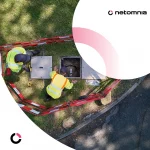October 2024 Progress Update on BT’s 10Mbps UK Broadband USO

UK ISP BT has published the final biannual progress update for 2024 on their delivery of Ofcom’s somewhat maligned 10Mbps Universal Service Obligation (USO) for broadband. The ISP has so far helped to build a USO connection to over 8,248 premises (up from 7,954 in April 2024), with 215 further builds in-progress (down from 265).
The USO is a legally-binding and industry-funded obligation that falls on BT across the UK and KCOM in just Hull. In short, people living in areas where they can’t yet receive a 10Mbps or faster download speed, and aren’t expected to be covered by such a network in the next 12-months, can request a service capable of 10Mbps+ downloads (1Mbps upload) from the aforementioned internet providers.
A cost sharing model also applies here, which means that the providers will “calculate the total excess cost of the build and divide that between the eligible premises. If that amount is below £5,000 per premises (on top of the £3,400), we’ll automatically split the costs“. But some areas can still end up costing hundreds of thousands of pounds, even up to £1-2m, and would thus find the USO route to be unviable (here and here).
Advertisement
Ofcom states that 57,000 UK premises (0.2%) currently fall into the USO gap (i.e. those outside of suitable fixed line, fixed wireless or 4G mobile coverage) or under 400,000 premises if you exclude wireless solutions. But the regulator was expecting this 57k to fall to around 50k by September 2024, mostly as a result of upgrades via publicly funded schemes (connection vouchers, project gigabit contracts etc.).
Just to be clear about this. Many of those who pursue the USO option via BT say they were offered 4G (mobile broadband) connections via EE, but those actually considered to have been delivered under the USO itself usually get Fibre-to-the-Premises (FTTP). Commercial builds of the latter have also helped to shrink the USO gap.
The gap will continue to shrink as both commercial and subsidised builds (e.g. the Gov’s £5bn Project Gigabit programme) expand. The government are also still exploring how best to reach those who live in “Very Hard to Reach” areas even faster speeds – roughly equating to the same sort of area as the USO is focused upon – and at the same time they’re preparing to review the USO itself (here), which could lead to changes. But this work may have been delayed a bit by the recent change in government.
BT’s October 2024 USO Report
The latest statistics continued to show that the delivery of USO connections is slow (e.g. a year and a half ago there were 2,000 builds in progress, which fell to 800 in Apr 2023, then 185 in Oct 2023, 265 in April 2024 and now 215). We suspect this may be a combination of factors, such as a lack of consumer familiarity with the USO (apply for it here) and the fact that the policy may be running into the limitations of economically viable deliverability.
Advertisement

Mark is a professional technology writer, IT consultant and computer engineer from Dorset (England), he also founded ISPreview in 1999 and enjoys analysing the latest telecoms and broadband developments. Find me on X (Twitter), Mastodon, Facebook, BlueSky, Threads.net and Linkedin.
« Virgin Media O2 UK Has Distributed 1,000 Free WiFi Delivering 4G Get Boxes






















































Is the Q3 FTTP build report due out this week, Mark?
The H1 FY2025 report is due out on 7th November. FTTP rollout progress will likely be in that.
USO “builds in progress” falling rapidly is probably because anyone who was interested in USO has already applied for it. Increasing 4G coverage from SRN may also be a factor.
I would suggest that Starlink be a factor as well. The number of properties that don’t have a fixed wire option that cannot get either 4G or Starlink must be vanishingly small.
I don’t think Starlink is an option that BT offer to meet their USO obligations. However, people who’ve been failed by the USO process (or can’t be bothered to apply) may go straight to Starlink themselves.
I think that’s Jonathan’s point…for those very remote, it’ll be a better option.
I think that the altnets should be singing their own praises, and shouting about it. That’s a much more positive message to the number of homes that the BDUK programme are supporting to get properly digitally connected.
Yes if it’s going to cost tens of thousands to serve one customer then surely a subsidised satellite link would be cheaper for both parties. I think BT partnered with OneWeb.
The Saddest part about this that BT will have completely lost sight of the numbers of people utilising wireless solutions. By pricing their USO option above every other provider out there they’ve just pushed people to seek alternative solutions.
I suspect BT isn’t really all that interested in customers who are insisting upon their USO rights – spectacularly low ROI, and if BT uses an Openreach based solution what’s to stop them moving to a competitor in two years.
For them it’s a net win if they go to another service, especially if they bin the POTS landline in the process.
BT is failing to deliver the promise of Project Gigabit as many rural FTTC are not considered in need of FTTP even when they have the copper pair to pull the fibre rhrough the last 1/2 mile.
Political or commercial, failure.